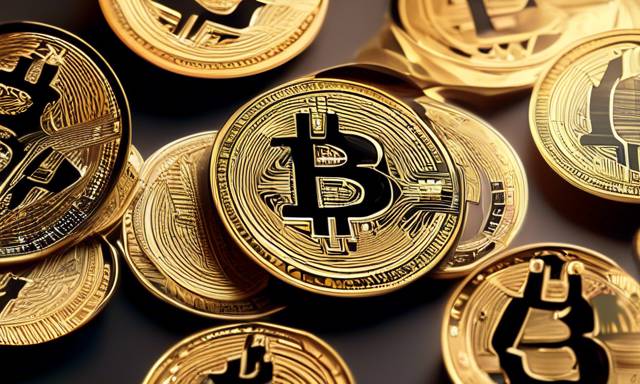Understanding the Regulatory Standpoint on Airdrops in the Crypto Space 💡
This year, discussions surrounding the regulatory treatment of cryptocurrency airdrops have gained significant traction. A recent letter addressed to SEC Chair Gary Gensler by Representative Tom Emmer (R-MN), who serves as the House Majority Whip, highlights concerns regarding how airdrops are interpreted under current securities laws. This letter emphasizes the opportunities being overlooked in the absence of a solid regulatory framework in the U.S., which can hinder American participation in digital asset incentives.
Concerns Over Airdrop Regulations ⚖️
In his correspondence, Representative Emmer, alongside Patrick McHenry (R-NC), the Chairman of the House Financial Services Committee, pointed out a glaring issue: the lack of clear regulatory guidance in the United States pertaining to digital assets. This uncertainty results in American citizens facing barriers when they attempt to claim airdrops. Emmer and McHenry contend that the SEC may be stifling opportunities for U.S. residents in the rapidly evolving digital landscape.
- They assert that such regulations could stifle innovation:
- Airdrops serve as incentives for user engagement in blockchain platforms, supporting governance and promoting decentralization.
- The ongoing regulatory ambiguity may limit incentives for users to participate more fully in these emerging technologies.
What Are Airdrops? 🌐
Airdrops refer to the distribution of tokens, which may include fungible and non-fungible tokens (NFTs), to eligible wallets as part of a project’s initiative. Such distributions typically aim to reward early adopters, encourage participation, and bolster future engagement with a specific crypto protocol or platform.
Unfortunately, due to regulatory fears, numerous projects have taken steps to block U.S. citizens from accessing airdrop claims. Notable examples from this year show that platforms like Saga, Tensor, and NIM have restricted access to their airdrop campaigns for users located in the United States.
Legal Challenges in the Airdrop Sphere ⚠️
The SEC has prominently addressed airdrops, notably when it charged Tron founder Justin Sun with multiple securities violations, which included actions involving several celebrity endorsers. Such legal actions serve to spotlight potential risks associated with airdropped tokens.
On several occasions, Emmer has criticized the SEC under Chair Gensler’s leadership. For instance, in a previous statement, he charged that the SEC’s approach embodies a “regulation by enforcement” strategy that has resulted in significant uncertainty for market participants.
A Call for Clarity 📜
In this year’s letter, Emmer and McHenry urged Gensler to clarify the SEC’s stance by September 30 regarding whether issuing non-security digital assets for free invokes the Howey test—a legal test used to determine whether certain transactions qualify as “investment contracts.” Furthermore, they sought to understand how the SEC distinguishes between complimentary rewards and airdropped tokens. The objective is to gain insight into the implications of regulatory considerations on decentralization aims in the blockchain ecosystem.
- Key inquiries made include:
- The impact on on-chain applications if tokens are categorized as securities, leading to comprehensive SEC oversight.
- Potential economic effects concerning market activity if digital assets face classification as securities.
The Broader Implications 🏛️
The Congressmen expressed their apprehension that the SEC’s stringent regulatory measures could ultimately hinder the growth and development of blockchain technology. They contend that restricting U.S. citizens from engaging in airdrop activities denies them the benefits of participating in revolutionary technologies that could redefine the internet and digital economy.
Emmer highlighted that this approach does not align with the ethos of decentralization inherent in blockchain technology, suggesting that the current regulatory atmosphere is counterproductive to American interests. By limiting participation in airdrops, the SEC may inadvertently sideline the very principles of innovation and inclusivity that should underpin the digital economy’s evolution.
Hot Take on Airdrops and Regulatory Framework 🧐
For the avid crypto enthusiast, it is essential to stay informed about the ongoing discussions and regulatory developments concerning airdrops. Understanding the implications of these regulations will be vital as the landscape continues to evolve. Engaging with these topics may empower you as a participant in shaping the future of digital assets and their role in a decentralized economy.
As the crypto ecosystem grows, so do the complexities of its regulation. Keeping a keen eye on movements from lawmakers and regulators will be crucial in navigating this space effectively.





 By
By
 By
By
 By
By


 By
By